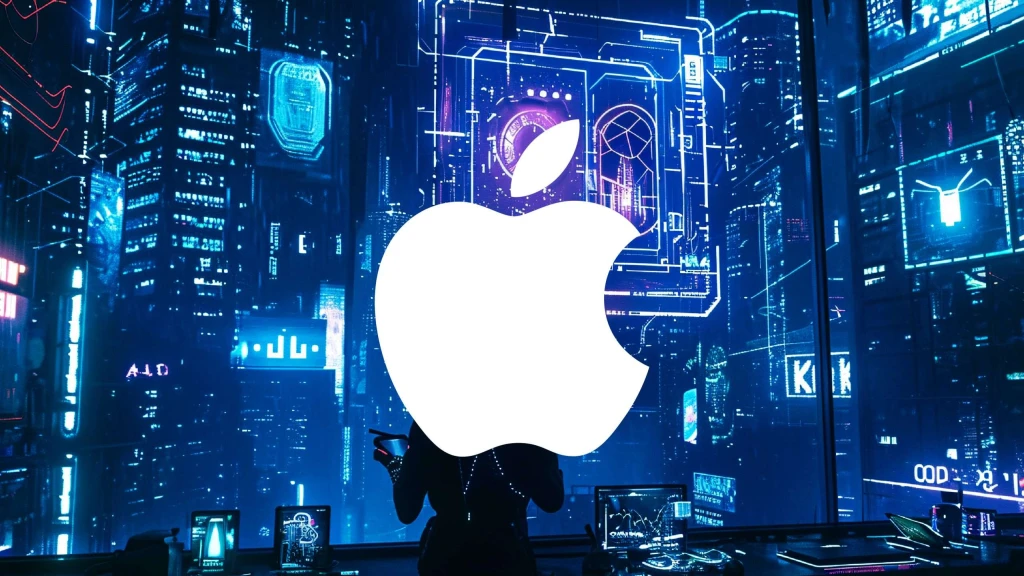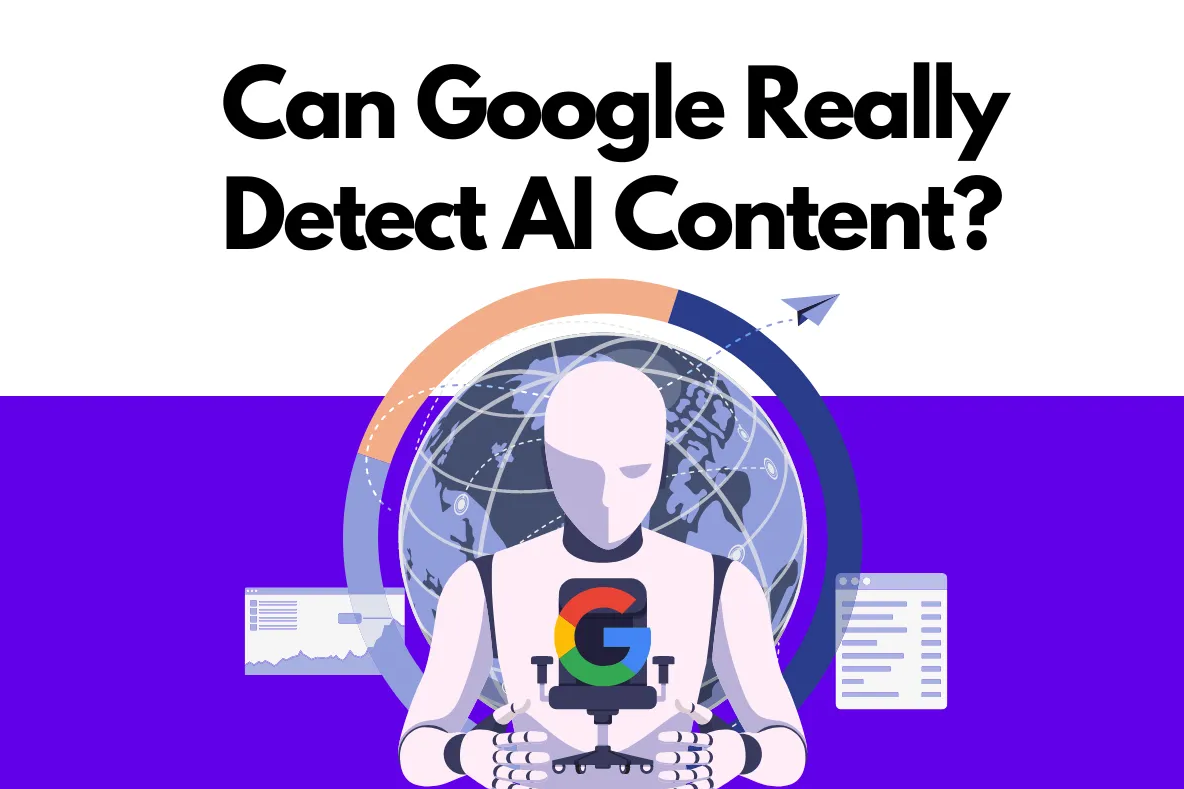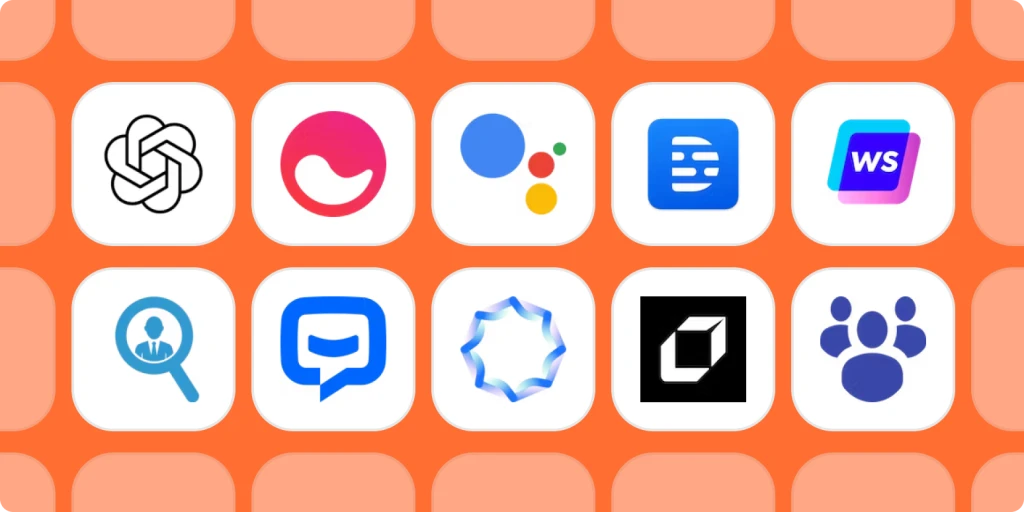Test AI on YOUR Website in 60 Seconds
See how our AI instantly analyzes your website and creates a personalized chatbot - without registration. Just enter your URL and watch it work!
1. Introduction: Apple’s Strategic Move into AI Infrastructure
This blog explores Apple’s AI server plans, the technology behind them, their impact on the AI industry, competition with tech giants, and what this means for privacy-conscious AI computing.
2. Why Apple is Building AI Servers
1. Enhancing AI Performance and On-Device Computing
Apple’s AI servers will support high-performance computing for machine learning and generative AI.
AI features such as Siri’s improvements, on-device intelligence, and predictive AI models will leverage server-based processing for more complex tasks.
AI servers will work alongside Apple’s on-device Neural Engines, enabling a balance between edge computing and cloud-based AI.
2. Privacy-Centric AI Processing
Apple has emphasized data privacy as a core principle, ensuring that AI processing on its servers follows a zero-trust approach.
With Apple-controlled AI servers, user data remains encrypted and anonymized, unlike traditional cloud-based AI models.
The initiative aligns with Apple’s development of Private Cloud Compute (PCC), a secure framework that extends on-device privacy protections to cloud-based AI.
3. Reducing Dependence on Third-Party Cloud Providers
Apple currently relies on Google Cloud and Amazon Web Services (AWS) for cloud computing, but this move signals an effort to reduce dependency on external infrastructure.
By building its own AI servers, Apple gains full control over its AI computing stack, ensuring tighter integration between hardware and software.
3. Apple’s AI Server Technology and Infrastructure
1. Apple’s Custom AI Chips for Servers
Apple is designing proprietary AI chips to power its cloud-based AI infrastructure, similar to Google’s TPUs and Microsoft’s AI accelerators.
These AI chips, part of Apple’s “Project ACDC” and “Baltra”, are expected to use TSMC’s advanced 3nm process, ensuring high efficiency and performance.
2. AI Data Centers and Infrastructure Expansion
Apple is expanding its data centers in North Carolina, Iowa, and Nevada to accommodate AI workloads.
The Houston, Texas facility, set to open in 2026, will be Apple’s first U.S.-based AI server factory, further enhancing domestic manufacturing capabilities.
The AI servers will run on renewable energy, aligning with Apple’s commitment to carbon-neutral operations.
3. AI-Powered Cloud and Edge Computing
Apple’s AI servers will handle resource-intensive AI processing, while lightweight tasks will continue to be performed on-device.
This hybrid approach ensures a balance between performance, speed, and user privacy.
4. Industry Impact: Competing with Google, Microsoft, and Amazon
1. Competing with Google’s AI Infrastructure
Google has pioneered AI server technology with Tensor Processing Units (TPUs) that power its AI cloud services.
Apple’s proprietary AI servers will likely challenge Google’s AI models and AI-assisted services, but with a greater focus on privacy and ecosystem control.
2. Taking on Microsoft’s AI Investments
Microsoft has partnered with OpenAI, integrating ChatGPT models into its ecosystem.
Apple’s AI servers will allow it to develop its own foundation models, ensuring that AI features on iPhones, iPads, and Macs remain proprietary.
Unlike Microsoft’s Azure-based AI services, Apple’s infrastructure will primarily serve its own ecosystem.
3. Reducing AWS and Cloud Dependency
Amazon Web Services (AWS) dominates cloud AI, offering AI-driven services to enterprises.
Apple’s move toward self-sufficient AI computing could lead to a shift where AI models are optimized for Apple’s ecosystem rather than relying on external AI clouds.
5. Privacy and Security Considerations
1. Private Cloud Compute (PCC) for AI Security
Apple’s PCC framework encrypts and secures AI workloads in the cloud, preventing unauthorized access.
AI tasks sent to Apple’s servers will be processed without storing identifiable user data, ensuring end-to-end encryption.
2. AI Transparency and Ethical AI Practices
Apple will likely implement transparency policies, allowing users to understand how AI processes their data.
AI models will be designed to prioritize user control, ensuring that Apple’s AI remains explainable and ethical.
3. Protecting Against AI Bias and Model Exploitation
Apple is expected to train AI models on diverse datasets, reducing the risk of algorithmic bias.
AI moderation and safeguards will prevent misuse of generative AI in content generation.
6. Future Implications: AI-Powered Apple Ecosystem
1. A Smarter Siri and AI-Powered Productivity
Apple’s AI servers will enhance Siri’s conversational abilities, making it a true AI assistant.
AI will improve email drafting, document summarization, and predictive text assistance.
Apple’s ecosystem will see AI-powered automation across Messages, Mail, and iWork apps.
2. AI in Photos, Music, and Content Creation
Apple’s AI servers will allow features like AI-assisted photo editing, generative image creation, and AI-generated music recommendations.
AI will enhance video editing, AR/VR applications, and content personalization.
3. AI in Health and Wearable Technology
Apple’s AI will analyze health metrics from Apple Watch, providing predictive health insights.
AI-powered fitness recommendations, mental health tracking, and sleep pattern analysis will improve overall well-being.
7. Conclusion: A New Era for Apple’s AI Capabilities
As Apple continues to develop AI-powered services, its AI servers will play a crucial role in delivering faster, smarter, and privacy-focused artificial intelligence experiences. This move not only strengthens Apple’s position in AI but also sets a new industry standard for secure and ethical AI infrastructure.






